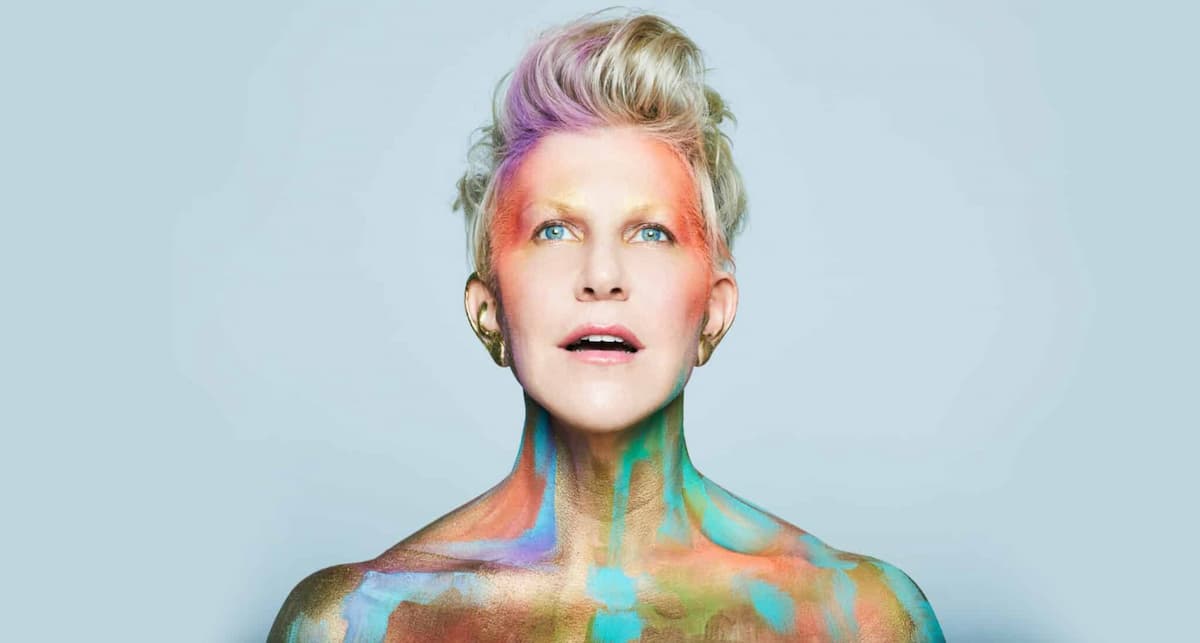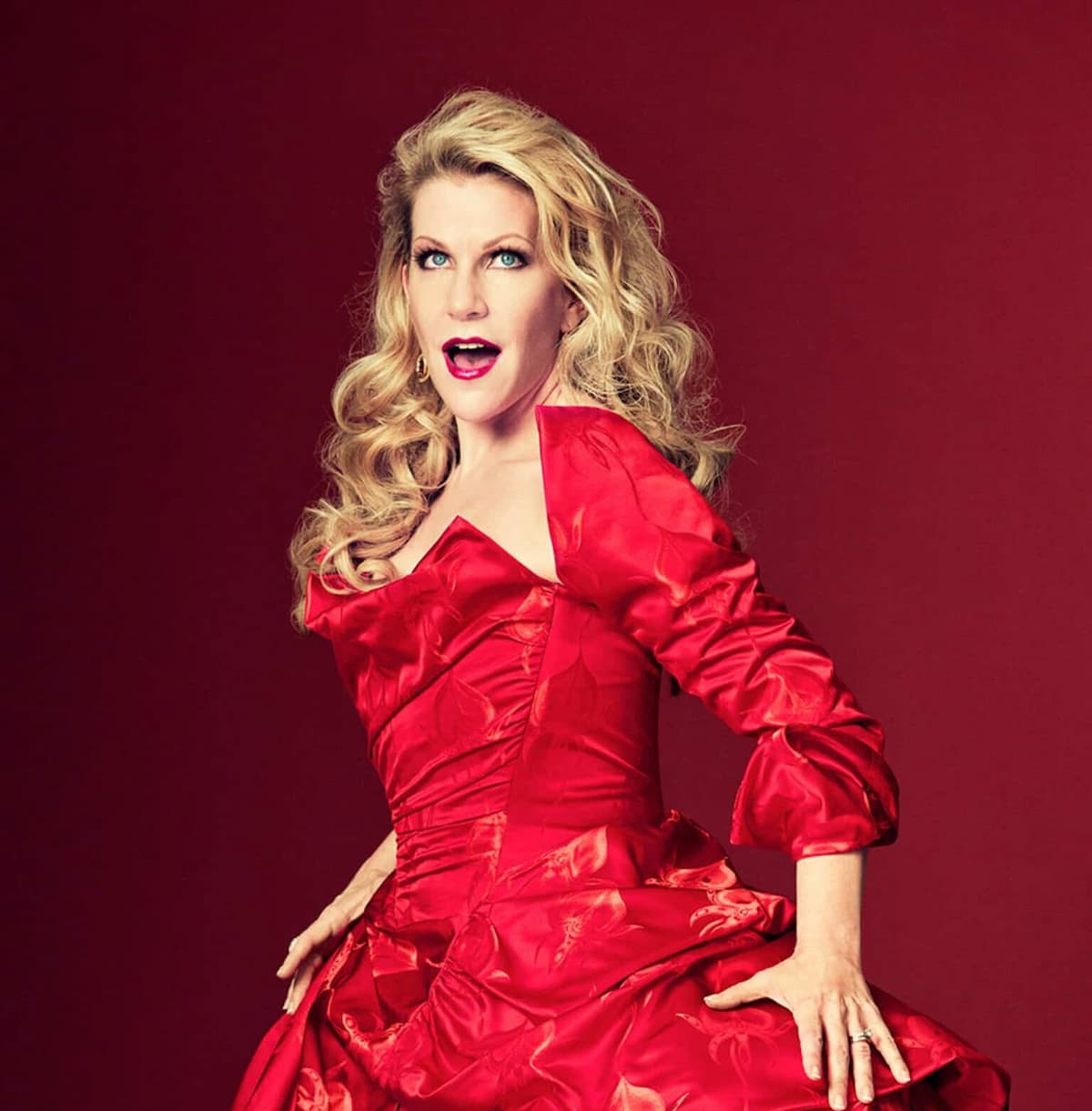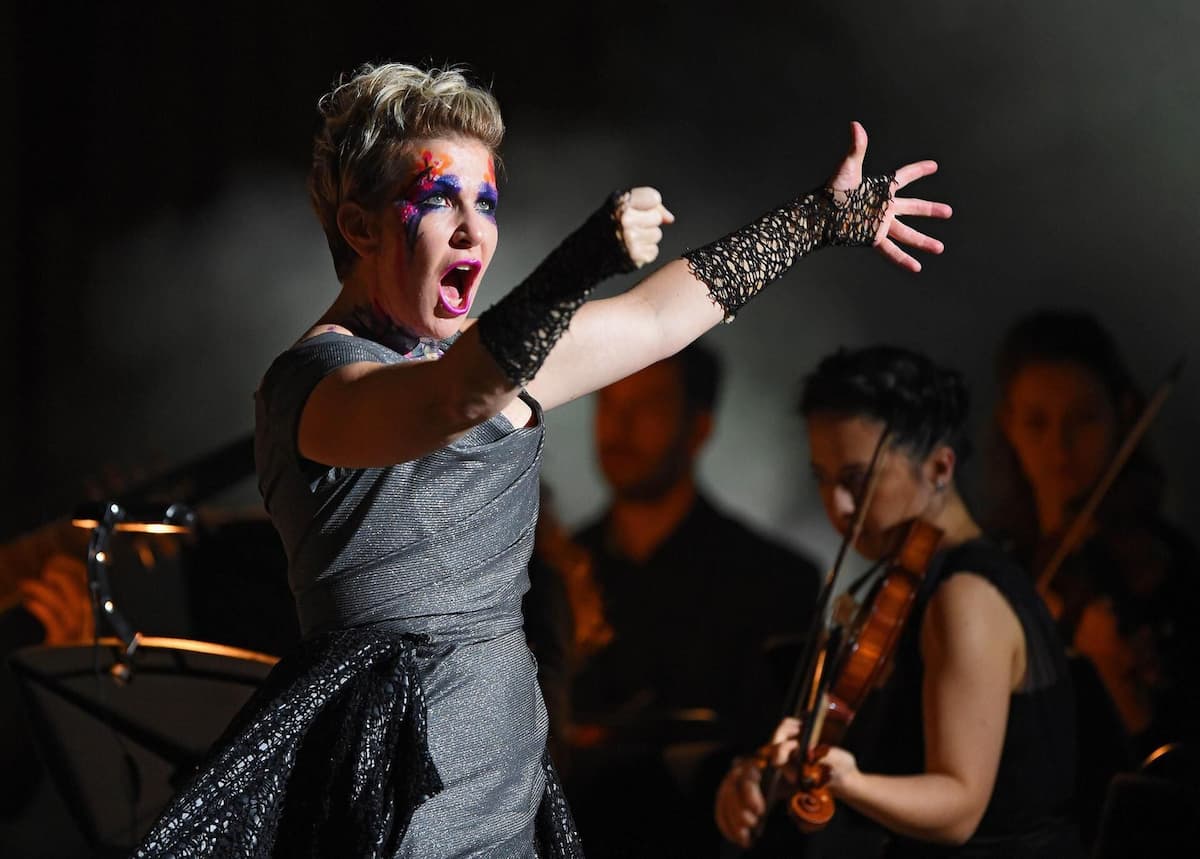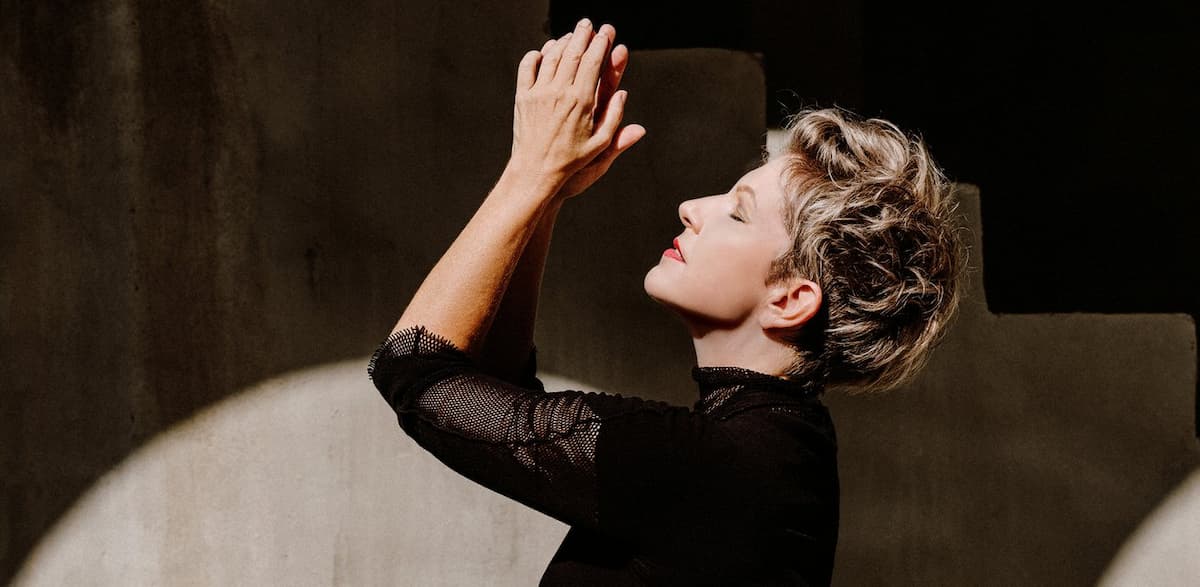Composer Jake Heggie writes, “The staggering, joyful artistry of Joyce DiDonato reminds us that in any generation, there are a few giants. Joyce is not only a great, brave, and inspiring artist – one of the finest singers of our time- but she is also a transformative presence in the arts. Joyce sings, and the world is suddenly brighter. She compels us to listen actively, to hear things anew.” A winner of multiple Grammys, she has been described as “perhaps the most potent female singer of her generation.”
Joyce DiDonato Sings Handel’s Rinaldo, “Lascia ch’io pianga”
Prairie Village
Born the sixth of seven children in an Irish-American family in Prairie Village, Kansas, on 13 February 1969, Joyce Flaherty grew up in a highly musical household. Her father was a local architect who directed the church choir, and her mother was the organist. As DiDonato remembers, her earliest musical memories “are more with my father than with my mom.”

Joyce DiDonato
Apparently, her father sang a lullaby to her every night, “Goodnight, little girl, goodnight, little one, may God bless you tonight.” Joyce remembers that “time stood still for those 20 seconds before I went to sleep. It was my one-on-one time with my dad when he was pulled in a million different directions, and it really was a bonding element in my life.”
Franz Schubert: Winterreise, Op. 89, D. 911 (Joyce DiDonato, soprano; Yannick Nézet-Séguin, piano)
Music Teacher
Her parents were very strict and observant Catholic, and Joyce attended St. Ann Catholic school. From the very beginning, she was told that it was her duty in life to find a vocation and serve God. Joyce recalls, “I thought mine was to teach. I saw poverty, abuse, and need in schools.” Joyce sang musicals at Bishop Miege High School and entered Wichita State University in 1988 to study vocal music education; she was training to become a music teacher.

When she saw a television broadcast of Don Giovanni in her junior years, Joyce felt an irresistible pull towards opera and a professional singing career. She was torn between the need to serve the community and the “enormous fun, the selfishness of performing.” Once again, her father came to her aid and explained, “You know, Joyce, there is more than one way to teach… That gave me permission to go to the dark side. I still want to feel I’m in service.”
Joyce DiDonata Sings Mozart’s La clemenza di Tito, “Parto, ma tu ben mio”
Large Musical Appetite
As a child, Joyce was a member of the choir for 4 years, and she was singing every single day. And while choral music played a big part in her growing up, so did rock and roll, big band and jazz, as her parents had eclectic musical tastes. DiDonato pursued graduate studies in vocal performance in Philadelphia and subsequently acted in the Santa Fe Opera’s Apprentice Singer program for the 1995 festival season.

Joyce DiDonato in Abu Dhabi
DiDonato appeared in several minor roles and became part of the Houston Grand Opera in 1996. She also competed in several vocal competitions, taking a number of prizes and commendations. However, things were not going in the right direction. “Lots of my friends were getting covers at The Met, and it wasn’t coming together for me. So I stopped and revamped.” It was a difficult 18 months as her teacher was “taking away all the mechanism that I was used to sing. And it was the best thing that could have happened.”
Jake Heggie: Camille Claudel: Into the Fire (Joyce DiDonato, soprano; Alexander String Quartet)

Joyce DiDonato © Salva López
DiDonato soon took operatic and recital stages by storm, but she would never forget her sense of responsibility and her instinct to teach. Always alert to issues of social and political justice, DiDonato began to draw parallels between the historic musical legacies that are centuries old and the turbulent present times. “It’s not just pretty melodies that sort of numb me to the world around me, but through song, I actually relive the cyclic nature of humanity going from war to peace.
For DiDonato, the arts have an immensely significant impact on the cognitive function of young people, and she takes music far beyond the operatic stages. As an eloquent and formidable advocate for the transformative power of the arts, she takes music to educational institutions, maximum-security prisons, and refugee camps. “In every society,” she explains, “music plays a protagonist role in the way people express themselves and come together as a community. It serves as a unifier and an expressive tool that truly can unlock division and turmoil.”
For more of the best in classical music, sign up for our E-Newsletter
